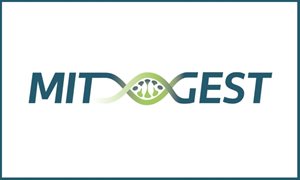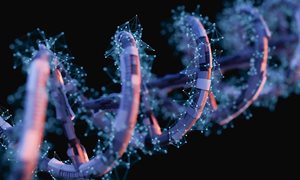 Martijn Huijnen and Ulrich Brandt, theme Mitochondrial diseases received a ZonMw Top grant of
€ 675,000 for a project entitled: Complexome remodelling in mitochondrial disease.
Martijn Huijnen and Ulrich Brandt, theme Mitochondrial diseases received a ZonMw Top grant of
€ 675,000 for a project entitled: Complexome remodelling in mitochondrial disease.
Martijn Huijnen
Cells need to respond continuously to challenges imposed by variations in nutrient supply, hormonal signals and pathogenic factors, like genetic deficiencies or insults. At the molecular level, this is achieved by a complex network of adaptive and compensatory mechanisms. The advent of such integrated understanding of cellular function has led to a fundamental paradigm change in biomedical sciences from a purely monocausal to a comprehensive systems approach in which “omics” technologies have become increasingly important to assess of the molecular inventory of cells and its dynamics. We here propose to expand and complement already available resources by comprehensive complexome analyses to assess the state and dynamics of multiprotein complexes in health and disease, providing a level of information of the state of the cell that is closest to the functioning of its proteins. For this, we will apply our newly developed complexome profiling approach as a powerful proteomics based tool to directly obtain and study the full inventory, size and composition of multiprotein assemblies with high-resolution, high specificity and sensitivity.
Within this project, we will focus on mitochondria, since their function is central to cellular function and survival. They are involved in a broad range of diseases from inherited disorders to neuro-de¬gene¬ration and cancer and are considered to play a critical role in biological ageing. The overarching goal is to decipher mechanisms for maintaining mitochondrial homeostasis at the level of multiprotein complexes and to reveal their role in pathogenic mechanisms leading to mitochondrial disease and mitochondria-linked degenerative disorders. We will first define the complexome of normal cells and its functional remodelling induced by genetic or external challenges. We will then study the role of these mechanisms in selected models of mitochondrial disease and build a functional complexome database accessible to the scientific community for comparative analyses. The complexome data will comprise the inventory of proteins and their presence and relative abundance in multiprotein assemblies including the information on the apparent molecular mass ranging from 10 kDa to ~4 MDa and therewith the multimeric state of the complexes. The dataset will be complemented by a set of parameters diagnostic for mitochondrial function that will be measured following established standardized protocols.
We will obtain valuable insights into the functional complexome remodelling network that can be expected to be highly relevant for the understanding of many pathological conditions involving mitochondria, like Parkinson’s and Alzheimer’s disease, diabetes, cancer and ageing. This will guide the development of relevant biomarkers, as well as preventive and therapeutic approaches. Since complexomics are applicable and relevant for essentially all aspects of cellular function, our approach bears the potential to have broad impact on biomedical science as a whole.
Ulrich Brandt
Related news items

Hans Spelbrink is beneficiary of the MITGEST Doctoral Network which receives 2.6 million euros funding (PhD positions available)
27 September 2022EU has granted the new Doctoral Network “MITGEST” (Quality Control of the Mitochondrial Gene Expression System in Health and Disease), of which Radboudumc is one of the partners, with 2.6 million euros of funding under the Marie Sklodowska-Curie Actions.
go to page
Towards a better understanding of Leigh Syndrome pathology and intervention published in Brain
8 December 2021 Melissa van de Wal and colleagues recently published a comprehensive review in the journal Brain on how Ndufs4 knockout mouse models have been used to unravel the pathomechanism of Leigh Syndrome. go to page
New genetic defect links cell biology and protein glycosylation
10 November 2021 Peter Linders, Dirk Lefeber and Geert van den Bogaart together with international colleagues have recently reported on novel cell biological insights, by identifying a genetic disorder in syntaxin-5 which allowed to unravel a new mechanism regulating intracellular transportation. go to page
RIMLS awards call for nominations
19 October 2021 RIMLS awards several prizes to stimulate and honor our (young) researchers. Upcoming awards are Supervisor of the Year, Best Master Thesis, Best Publication, Best Image and more. Send your nominations now before 24 November 2021. go to page
Systematic analysis of short tandem repeats in 38,095 exomes provides an additional diagnostic yield
22 September 2021 Christian Gilissen and colleagues published in Genetics in Medicine about their work guiding the application of short tandem repeat analysis in clinical exome sequencing. go to page
